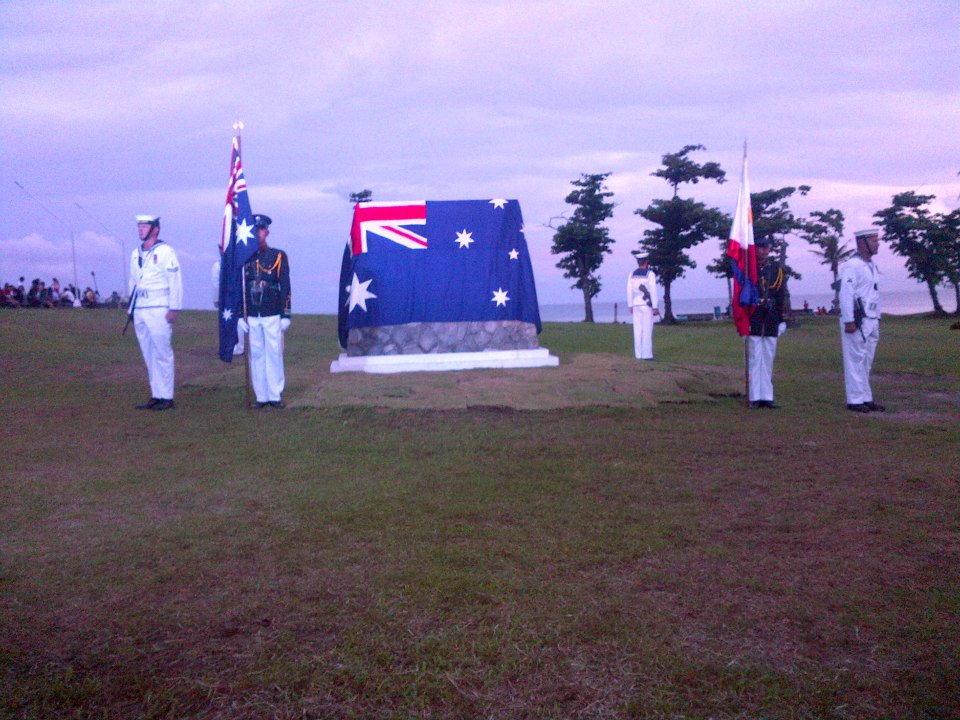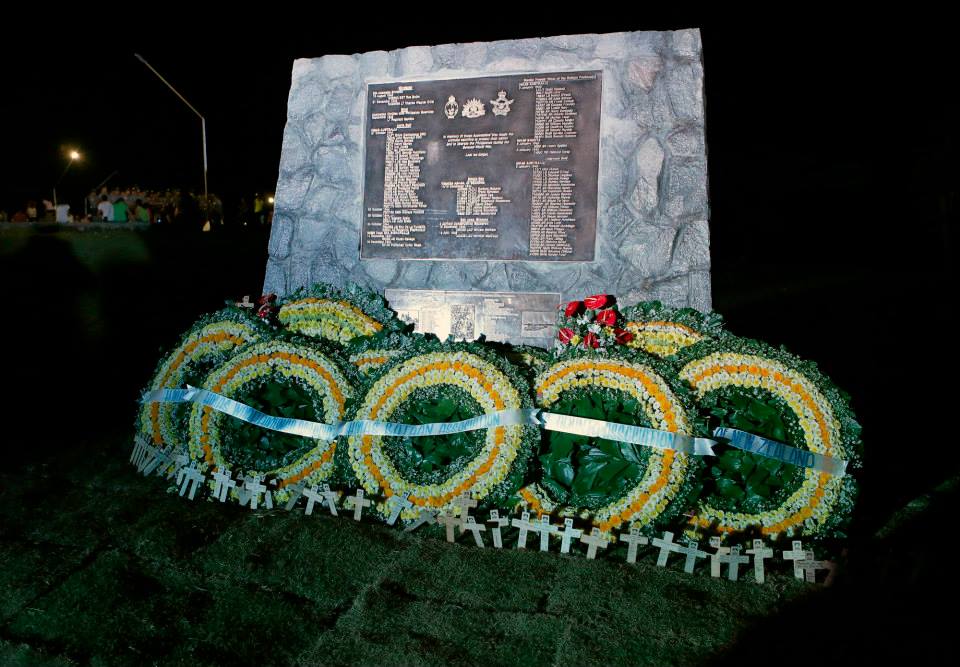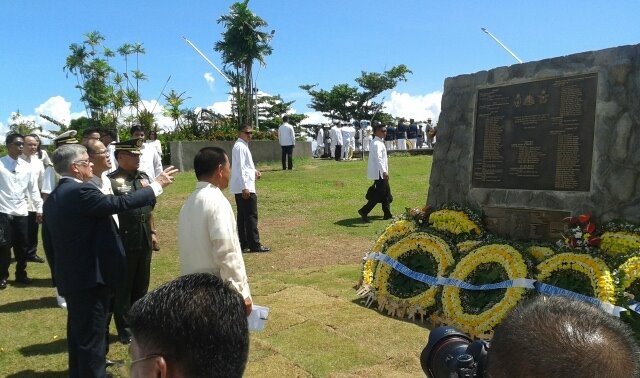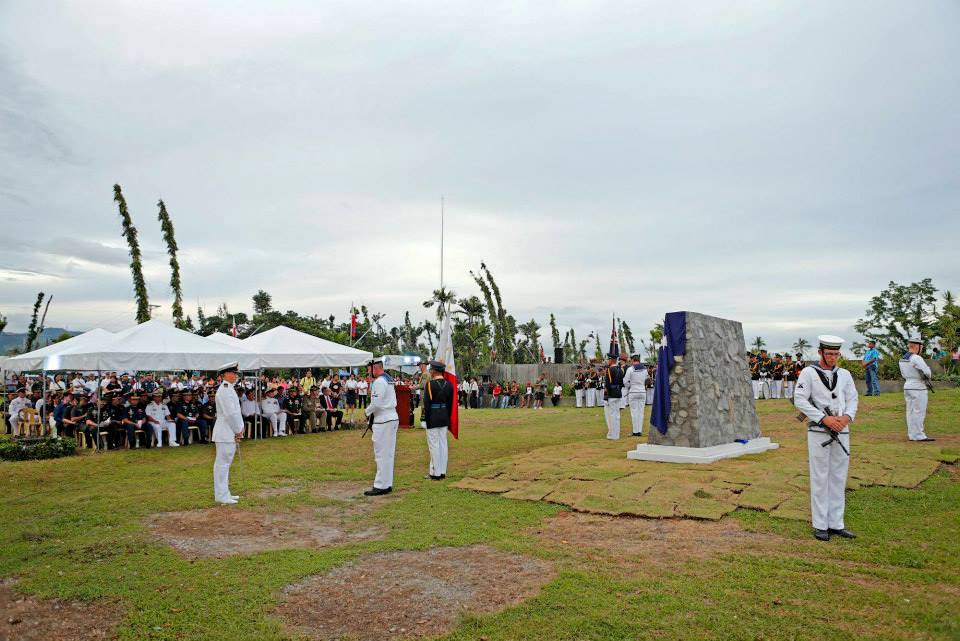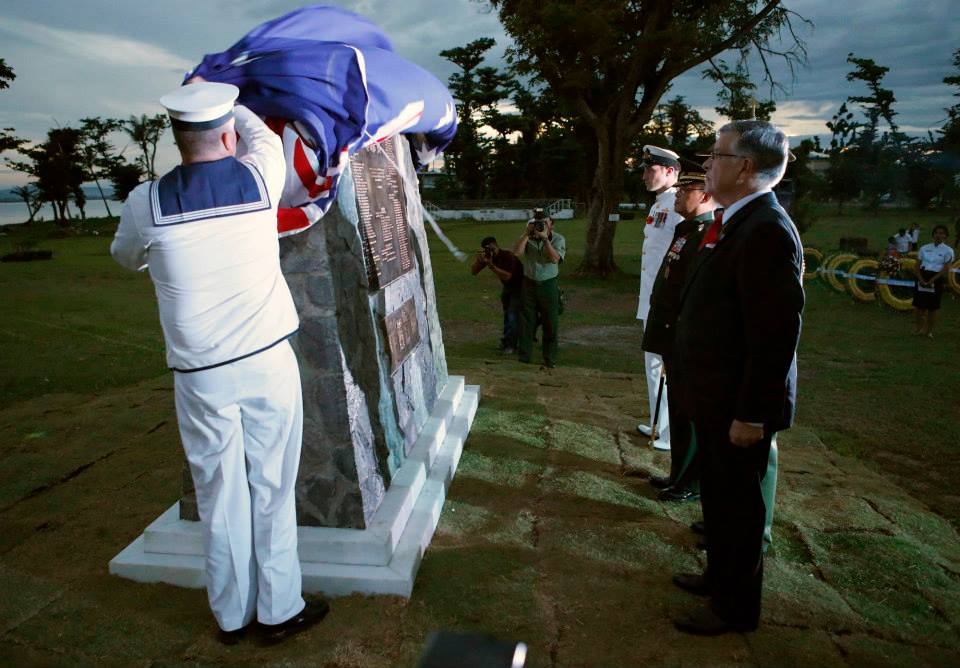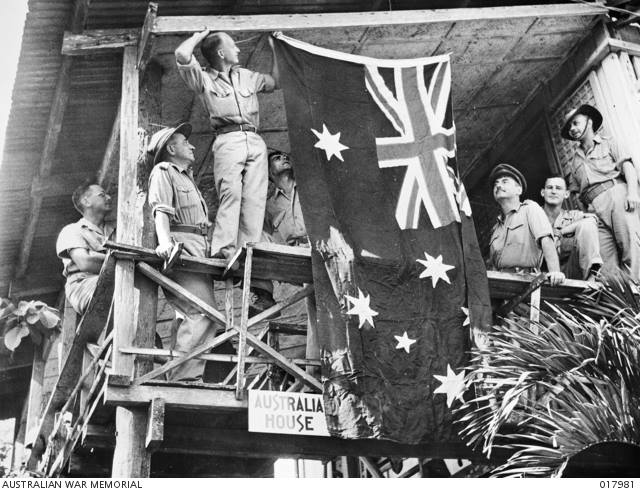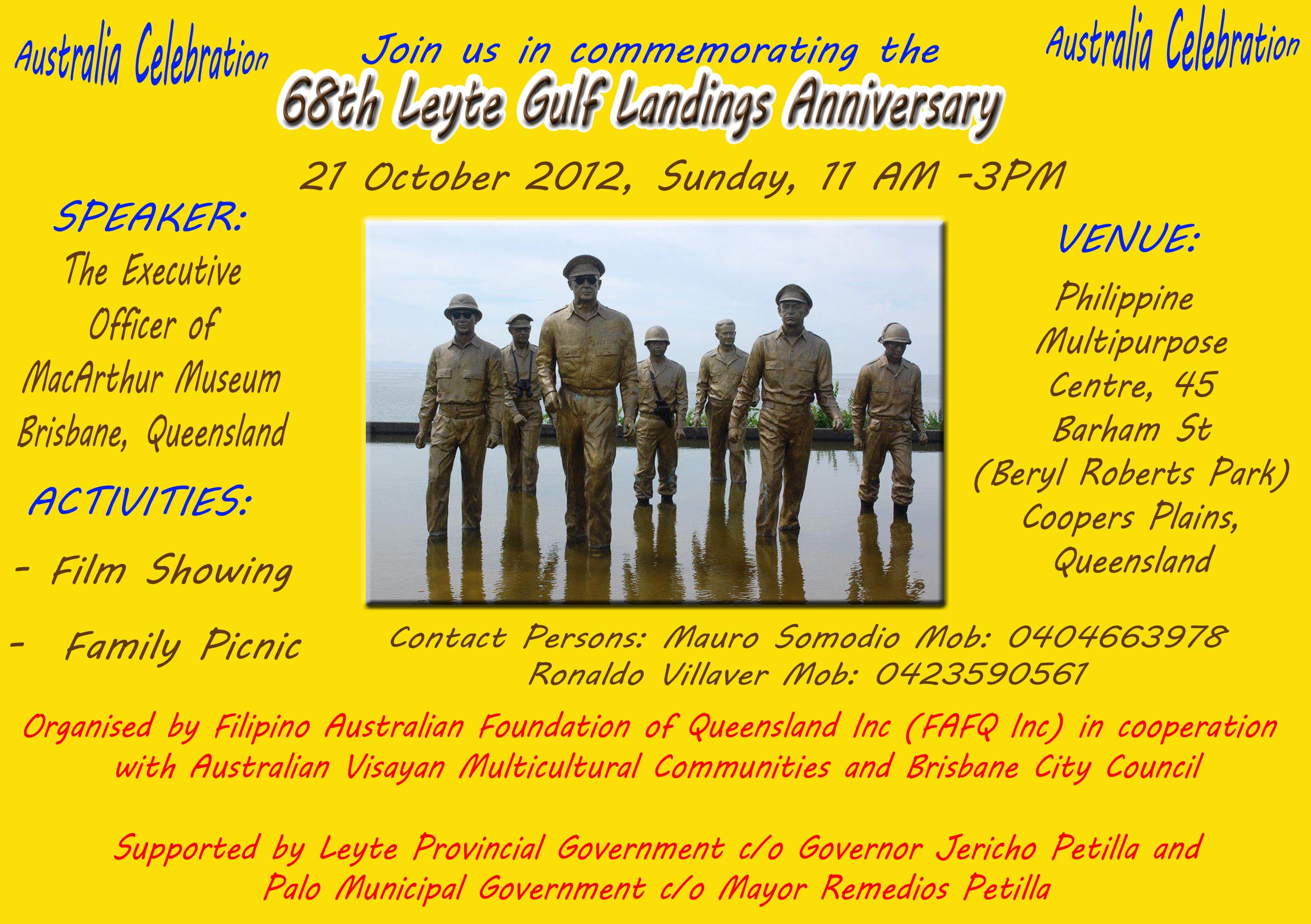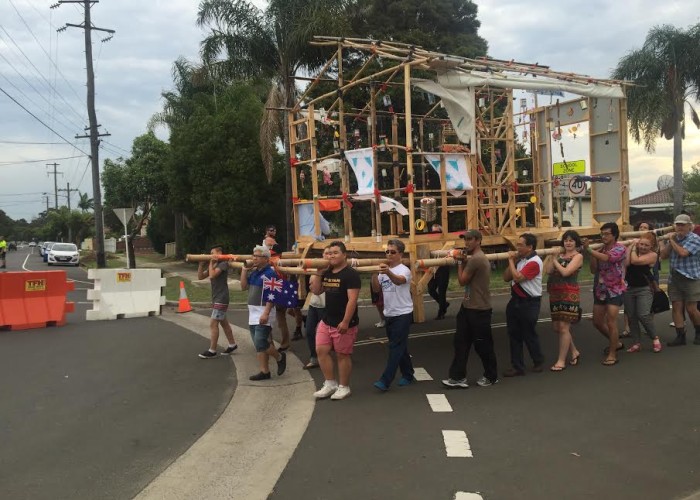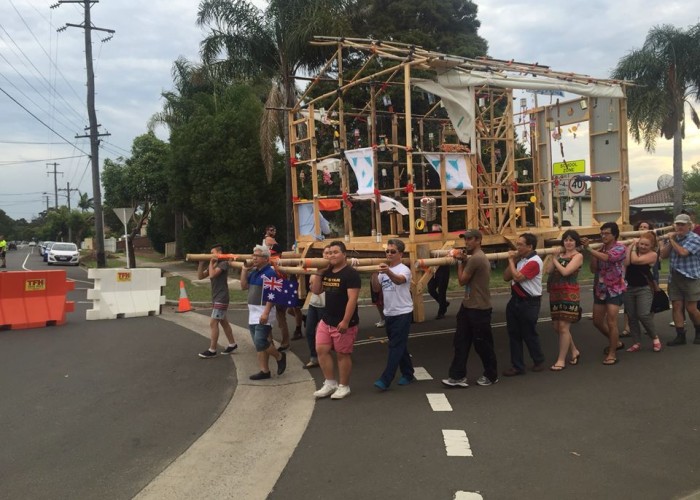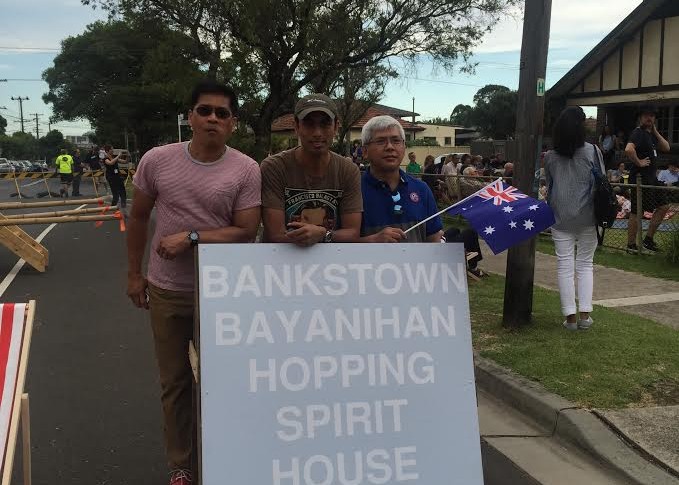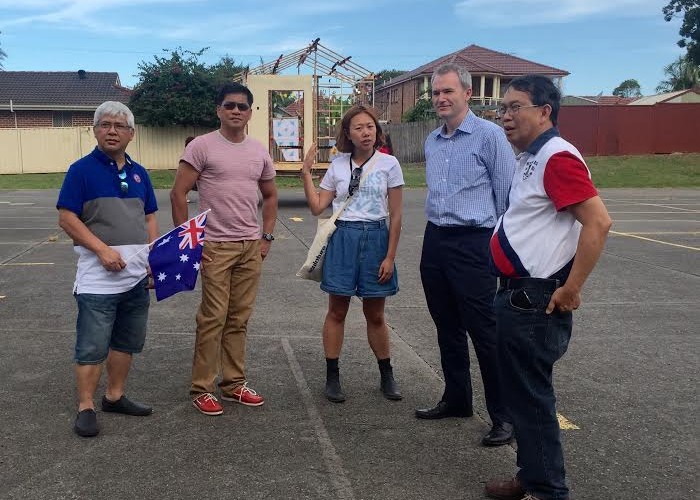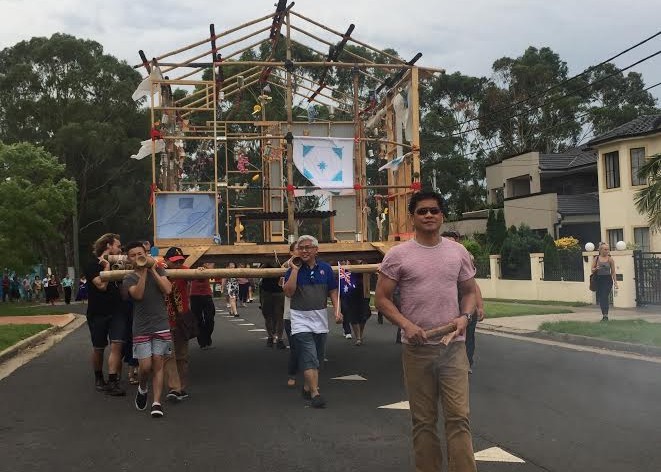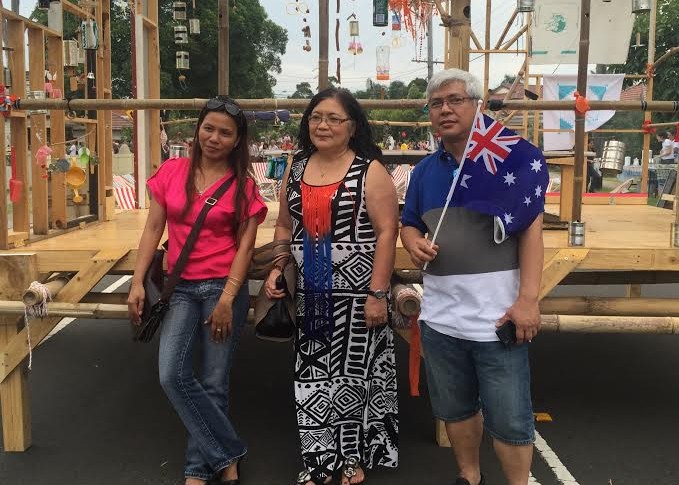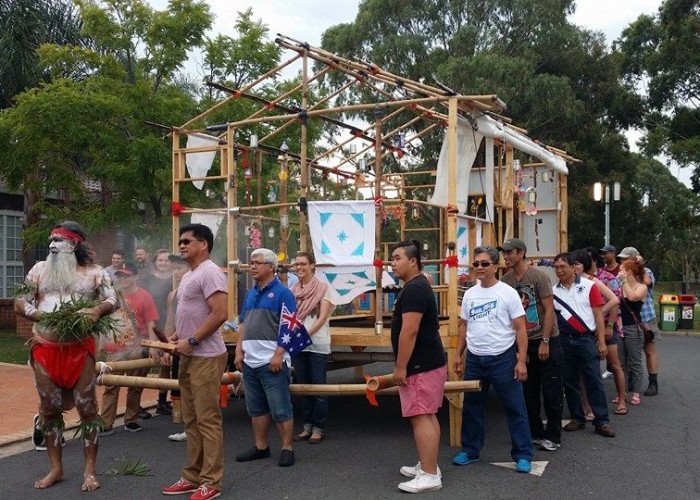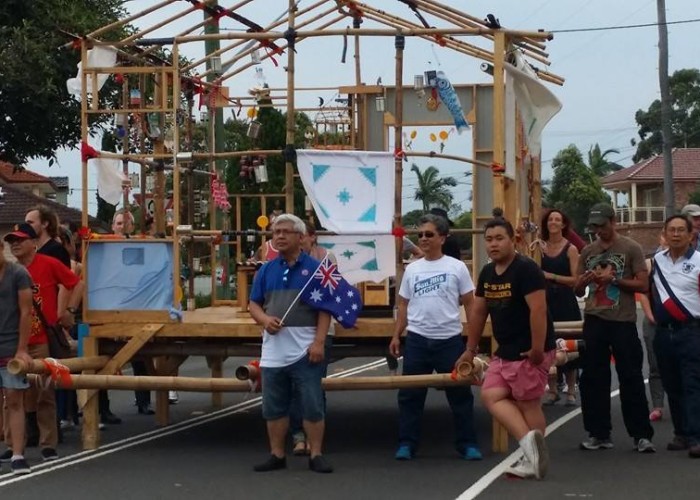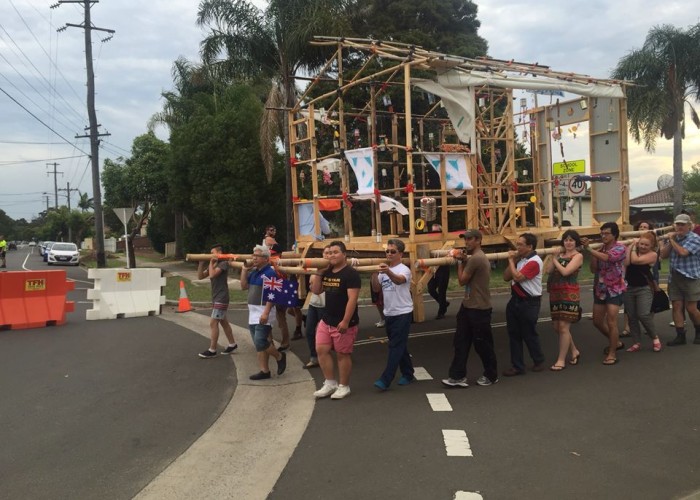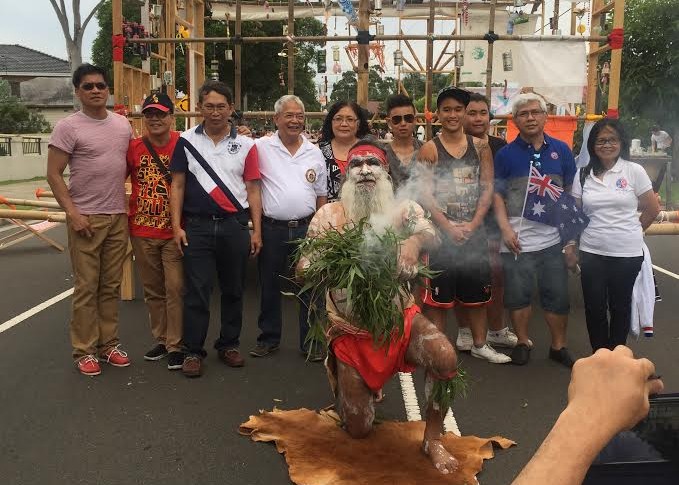http://www.mb.com.ph/war-veteran-98-recalls-macarthurs-landing-in-leyte-70-years-ago-today/
by Rizal Obanil
October 20, 2014
He lost his wife after a bomb from Japanese forces hit their town capital. He had to drink from murky p uddles to survive during the second World War. In his company, belonging to the 1st Regiment of the Eastern Visayas Command under then Colonel Alejandro Almendras, he lost four of his fellow soldiers.
uddles to survive during the second World War. In his company, belonging to the 1st Regiment of the Eastern Visayas Command under then Colonel Alejandro Almendras, he lost four of his fellow soldiers.
But, he said, when he saw General Douglas MacArthur, President Sergio Osmeña, and Carlos P. Romulo walk side by side on the beach of Palo, Leyte, 70 years ago, that one brief moment was worth all the sacrifices he had made as a soldier.
“Sa wakas malaya na!” (Freedom at last!), said Filipino veteran Pedro Echances, now 98.
Seventy years since MacArthur landed waded ashore in Palo Leyte, the memories come flashing back to Lolo Pedro as if it had all happened yesterday.
When General MacArthur came, he said, the 1st and 2nd Regiments, made of six battalions, all saluted his triumphant return. As MacArthur finally set foot on the beach, Echances recounted, they clapped and cheered.
In an interview at a hotel in Tacloban City, Leyte, where he aended the 70th annivesary of the Leyte Landing, Echances recalled: “Grade seven ako noon nung pinatawag kami sa Camp Murphy.” He was assisted in the interview by his daughters Celerina Echances, 65, and Augustina, 60. They translated for him as he could not hear very well and could converse more freely in their native tongue.
He said remembers that the camp was located in Pasig. It was there where, he said, underwent five and a half months of training, after which he and his group returned to Leyte.
He recalled his hardship as a soldier. He was assigned to patrol their area and they sometimes engaged the Japanese in firefights. They crawled on the ground and kept low to avoid detection and sniper fire.
To satisfy his thirst, he often had to drink water found in the fields. Celerina recalled that at one time, when she reminded him to refrain from drinking straight from the faucet as it might not be safe, he answered back: “Sus, kung dati, kahit yung nilakaran nga ng kalabaw iniinom ko e, di naman ako nagkasakit, e yan pa kayang galing sa gripo na malinis naman? (If I didn’t get sick from drinking water that a carabao had stepped on, I certainly wouldn’t get sick from drinking water from a faucet).”
Celerina said that her father and mother were separated by the war. As he fought the Japanese, her mother served at the town hall, attending to the wounded and the sick. She died when a bomb hit the town hall. Eventually, after the war, their father remarried at the age of 52.
Towards the end of the war, Echances found himself with the Filipino soldiers assigned to help secure General MacArthur’s and President Osmena’s safe return. They secured the beach, despite continued bombing from the Japanese forces.
During our interview, Lolo Pedro recalled the names of his superior officers. “Malakas pa yan! Sharp pa din! (He’s still strong! He still has a sharp mind), Celerina beamed with pride.
She said, though, that her father is saddened by younger generations who are oblivious to the sacrifices made by him and other veterans.
“He receives P6,000 a month for his pension,” she said.
When I heard her say that, I remembered a scene from the movie “Saving Private Ryan,” where a general read a letter written by then US President Abraham Lincoln to a mother in Boston who had lost five of her children in the civil war.
The letter read: “I feel how weak and fruitless it must be any words of mine which should attempt to beguile you from the grief of a loss so overwhelming. But I cannot refrain from tendering to you the consolation that may be found in the thanks of the Republic they died to save. I pray that our heavenly father may assuage the anguish of your bereavement, and leave you only the cherished memory of the loved and lost, and the solemn pride that must be yours to have laid so costly a sacrifice.”
Perhaps, when the youth of today, so detached from what Lolo Pedro and his generation did for our country, look back at our history, they should do so carefully as not to belittle the sacrifices they made.
At the end of the interview, I shook Lolo Pedro’s hand, then offered a salute as best I could.
I told him: “Salamat po, Lolo, kung di po sa mga katulad n’yo, hindi po kami malaya ngayon (Thank you Lolo Pedro. If it were not for those like you, we all wouldn’t be free today).”

